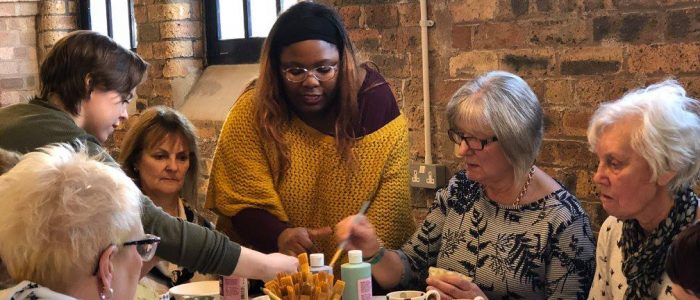‘Equality’ gets us to the table, but it’s what faith has to offer that matters

One of the reasons that FaithAction often gets invited to take part in health projects is that ‘faith and belief’ is a ‘protected characteristic’ under equalities legislation. That means that it’s illegal to discriminate against someone because of their faith or beliefs – just as it’s illegal to discriminate against them because of their age, race, gender or other characteristics. When policy makers are developing new initiatives, they want to make sure that they are bearing in mind these protected characteristics, and that their plans won’t unfairly disadvantage any of these groups of people.
It’s also recognised that faith communities often represent people who experience what are known as health inequalities. That is, it’s well known that some groups of people have worse health outcomes than others.
We know, for example, that south Asian men are six times more likely to have diabetes than the population as a whole. We know that black people are almost four times more likely than white people to be detained under the Mental Health Act. And there are other examples too – but the point is that many of these people will have contact with faith communities.
This means that faith groups can be a way of providing information and care, or starting to have conversations with people about their health – and in turn, that can mean that things that could become serious problems can be headed off before they advance.
So, these are some of the reasons that we at FaithAction find ourselves with a seat at the table when it comes to discussing health. Just this month, we’ve been talking to policy teams from the NHS about the Long Term Plan that the NHS is currently developing as it considers the coming 10 years; we’ve had a presence at the NHS Expo and the Public Health England annual conference, and we’ve been meeting with the civil servant in charge of tackling loneliness – something that can have a big impact on health.
However, once we get to the table, what we tend to want to talk about is not what a problem it is to be representing a faith community. While we wouldn’t want to minimise the real inequalities that exist, what we really want is to highlight is the positive difference that faith communities are making when it comes to health, and the potential for even more to be done.
As just one example, think of the thousands of faith groups that provide a place for people to come and have a meal – whether that’s the langar that Gurdwaras and temples serve to anyone who walks in, the drop-in café for the Jewish community that was the runner up in our Faith and Health Award, the meals provided at Sufra food bank and kitchen, the lunch clubs for elderly people provided by many local churches, the soup kitchens and drop-ins for homeless people that so many faith groups run… these are not only about the opportunity to eat, although of course that’s vital. They are an opportunity to connect with others, make friends, find a community where people can belong. And that is just as important for wellbeing (as the health system might term it) or human flourishing (as the more philosophical might say). If all the resources of faith in the UK could be mobilised, just think of what a transformation might take place.
One piece of good news is that it seems the policy makers really are ‘getting it’. We’re now in a position of being able to point to such good case studies, when we talk about what faith-based organisations are doing, that the answer is often ‘Brilliant! What a great idea! How can others take this on?’
We really want to make the most of these solutions, so if you know of one, or know of how what works has been spread and applied in other settings, get in touch: [email protected].


